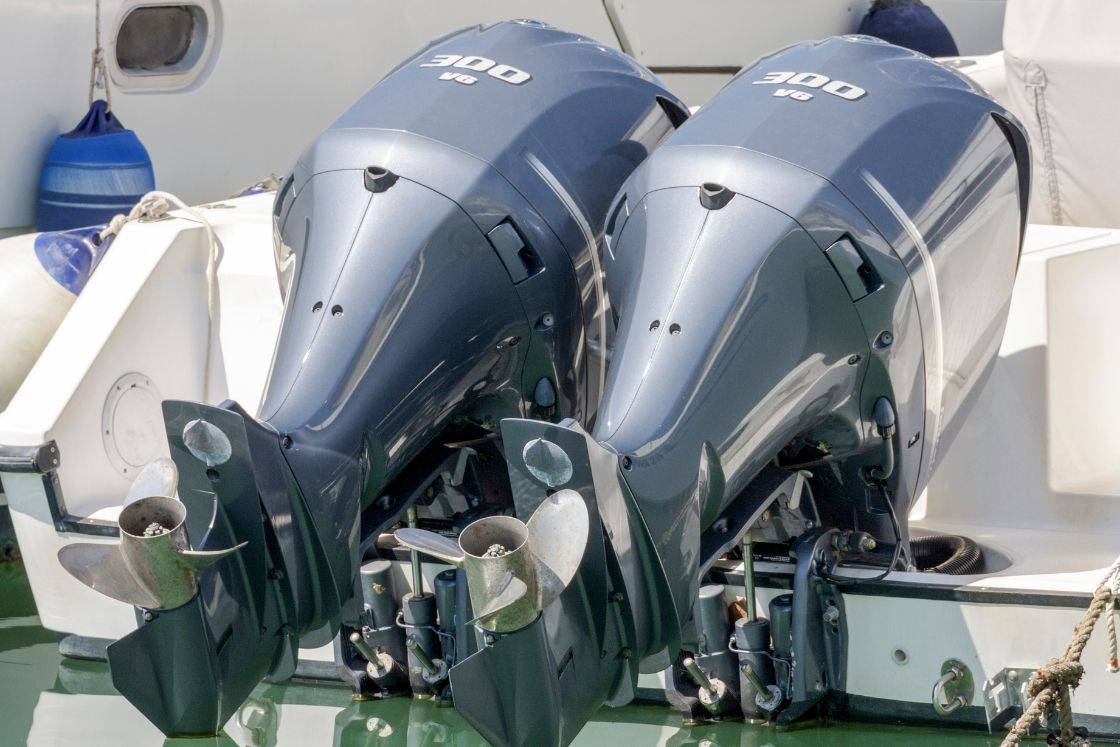Choosing a boat motor is like deciding what kind of engine to put in a car—it’s not a decision to take lightly. Your motor should be in harmony with the functionality you expect from your boat and your own skill level as a boater. Whether you revel in the sea spray of a nippy outboard motor or prefer the sleek, powerful engines of luxury speedboats, there’s a motor type perfect for your needs. We explore the different types of boat motors to consider when it’s your turn to invest in a luxury toy.
Outboard Motors
Outboard motors are a classic choice for their versatile applications. They’re the motor of choice for smaller vessels due to their ease of installation and maintenance. These motors sit outside the boat and do not require any hull modifications.
When selecting an outboard motor, power preference varies based on the boat’s size and the speed you’re aiming for. Routine maintenance is key, from checking and changing the oil to inspecting spark plugs and ensuring the motor’s cooling system is debris-free to prevent overheating.
Inboard Motors
Inboard motors rest within the boat, typically under the deck or in a specialized compartment. These motors boast a smooth ride and are ideal for larger boats driven by seasoned sailors.
An inboard motor’s large size offers more powerful performance, and because they’re not exposed to the elements, they tend to last longer with proper maintenance. This type of motor requires a bit more effort and expertise for maintenance, usually requiring a marine mechanic.
Stern Drive Motors
Stern drives are a hybrid of sorts—combining the functionality of inboard motors with the maneuverability of outboards. Often seen on more performance-oriented boats, stern drives offer efficiency through their design, which allows for full submerging below the waterline. Servicing a stern drive is a bit more complex than an outboard but is more within reach for the experienced do-it-yourselfer.
Electric Boat Motors
Electric boat motors are rapidly gaining popularity as a sustainable and quiet alternative to traditional gas-powered engines. Ideal for environmentally conscious boaters, these motors run on electricity and produce zero emissions—significantly reducing the boat’s carbon footprint.
The quiet operation of electric motors minimizes noise pollution and enhances the peacefulness of boating experiences. Electric motor maintenance is generally simpler than their gas counterparts, with fewer moving parts leading to less wear and tear. It’s worth researching more about electric boat motors if you’re interested in an eco-friendly, quiet alternative.
Your choice of a boat motor directly reflects your boating philosophy and practical needs. Each type offers its own advantages in various scenarios, and selecting the right one can significantly enhance your time on the water. Take our advice on the different types of boat motors to consider and enjoy the waves as they come!








